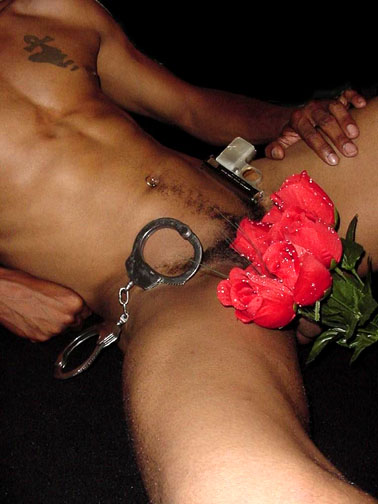Tags
Joseph de Maistre, the French moralist, philosopher, lawyer, and diplomat observed that “Every nation has the government which it is fit for.” A hundred years later, Robert F, Kennedy added to that aphorism, “What is equally true is that every community gets the kind of law enforcement it insists on.” Both sentiments hold true no more so than when applied to Thailand. The strangeness of Thai politics – which seems to be all about what color of T-shirt you wear – and the uncertainty in the Westerner mind over the treatment they will receive if forced to deal with the Boy in Brown is due to the vast difference between our cultures. The Thai government, regardless of which party is currently in power, works well for the Thai people. We shouldn’t try to understand it. To our way of thinking, it is incomprehensible. And as for dealing with the local version of law enforcement: just know that some baht will always put justice on your side.
This week all of the gay Thailand message boards carried threads about a raid on Hero massage in Bangkok stemming from a rather short article in the Bangkok Post. The usual suspects quickly weighed in on the reasons behind the raid, offering the Westerner version of law enforcement logic coupled with the Thai version of law enforcement that almost always has to do with money exchanging hands. It was a microcosm of the news agencies of the west covering the red shirt protests a few years ago. Not being Thai, they never quite got it right. They used a non-Thai mindset to explain what was happening and why. And failed miserably in doing so.
When you are raised in a nation of laws, it is almost impossible to comprehend the workings of a nation that views laws as a convenience; it’s convenient to pull them out when they bolster your side of an issue, convenient to ignore them when they don’t. In the west we say ‘laws were made to be broken.’ Thais would only wonder why you’d bother to break something so insignificantly unimportant in the first place.
It’s one of the many paradoxes you run across in Thailand. Cultural and societal norms govern every waking minute of Thai life. What we as Westerners might balk at passes without question in Thailand. No one asks why. All that is required is to know that this is how things are done in Thailand. Everyone knows their place. Everyone knows what is expected of them in any given situation. And no one goes against the grain. And yet rules – actual laws – are viewed more as guidelines. Compliance is optional. At best. It’s enough to drive a farang bonkers. And if a farang is foolish enough to actually drive . . .
“Because I Thai” is an often used bit of reasoning employed by Noom, my bar boy friend and current love of my life. Whatever the subject, whatever the question, his Thainess supersedes all other considerations. That’s second only to “In Thailand we . . .” That one he pulls out to disapprove of whatever it is that the rest of the world holds to be true. I especially appreciate that usage when he’s instructing me on the correct use of English. That English happens to be my native language matters not. Thais know better. Because they are Thai.
Noom is at his most Thai when it comes to societal rules. Not the ones meant to govern the country. Those are of only minor interest and can be dispensed with whenever necessary, or even just for the hell of it. But the unwritten ones, the ones every Thai knows and no farang can ever understand, are of the utmost importance. Like most Thais he’s very forgiving of Westerners who don’t ‘get’ Thailand. Like most Thais when it comes to the little observances that Thai know about and Westerners screws up with abandon, he finds our antics amusing. Thais tend to view us as children. Slow ones at that. No reason to get upset when farang misbehave, they just don’t any know better. But let a Thai ignore one of those rules and you’d think the guy just killed someone. Except of course if the offense was an actual murder, then, well, there probably was a good reason for it anyway.
Societal rules and customs are not unique to Thailand. Though those of Thailand are unique to the world. Years ago in preparing a series of lectures about community rules, enforcement, and compliance I ran across an applicable section in a book by M. Scott Peck. He was explaining the difference between laws and the daily rules we live by, and the differences in how we comply with the two. He used as an example a four way corner, an intersection where traffic crossed from all four directions.
In a small community where everyone knows everyone else, all drivers hitting that intersection would stop and then take turns going through. Not because of any laws that may be on the books, but because of community standards. Peer pressure at a community level would keep everyone in line. Plowing through the intersection without regard of your neighbors would result in some degree of ostracization within the community. Bad dog!
Put up stop signs and legislate a requirement that all drivers stop and then allow the car who first arrived at the intersection to proceed before you changes the dynamic. It’s no longer society, but government that dictates how drivers should act. And perhaps not surprisingly, you then need some form of law enforcement because where before no one would dare break the societal rule, now that it was a law . . . well, rules are made to be broken.
Of course part of that is at first you are dealing with a small community. A village if you will. As that community grows and expands to city size, its citizens are no longer as tuned into the collective needs of the community. Because there is then a need for them, laws replace societal rules. And with laws comes the need for enforcement. What’s that have to do with Thailand? It is still a nation of villages. Even in Bangkok. It still operates under societal rules. Laws, and the Boys In Brown, are an anomaly. And enforcement then, is bent to custom rather than used to apply the law.
What’s that got to do with Noom? Ask him. He’d tell you, “Because I Thai.”
Another recent topic on all of the Gay Thailand message boards reminded me of his moral compass that reveres cultural rules and disregards the laws, often at the same time. HRH Princess Bejaratana died last July. Her funeral will be held the second week of April. In observance of the solemn occasion, nightlife establishments will be closed. You can imagine how well that sits with the sexpat and sex tourist of Thailand. And it’s not the typical one day holiday prohibition against alcohol, but a three-day total closure of their lives. Westerner bar owners are anxiously awaiting official word on the closures, expecting as is the norm that official word will come down a day or two in advance. Instead of checking with their lawyers, they should stop any Thai on the street and ask. Because it is not about laws, it’s about societal rules. And any dummy knows when a royal is buried the nation comes to a respectful halt.
I too spend a lot of my time in Thailand in the bars. But I’d kill to be in Bangkok for the Princess’ funeral observation. I was lucky enough (if I’m not going to hell for using the term luck about someone’s death) to be in Bangkok during the funeral of HRH Princess Galyani Vadhana, the King’s sister. And I was lucky enough to know Noom, who knew of the observance taking place at the Ananta Samakhom Throne Hall. I’ve told that story here before. There was the humorous experience of purchasing appropriately black garments to wear to the event, and the incredible display of art work on view at the hall. I’m sure other farang attended too, but I never saw any of them while we were there. It was a mass of brown faces peaking out of somber colored clothing. What I didn’t write about previously was the souvenir stand.
After filing through the throne hall and then out through large tents where you were suppose to stop and write a personal message to the King in one of thousands of books provided for the purpose, the exit was through an equally massive set of tents filled with official Royal souvenirs for sale. The nation mourned the princess’ death, but there was still money to be made. Or on Noom’s side of the equation, money to be spent. Though I had never heard him mention the princes before, he could not live without a rather large picture of her framed in gold.
I know that purchase wasn’t so much about that particular royal as it was about the Thai societal custom of showing reverence to the Royal family. I don’t think there is any Thai household without at least one picture of the King prominently displayed. Now that his sister is dead, she too has many new homes. Including Noom’s.
I don’t remember how much the picture cost but do remember my surprise that it was such an exiguous amount. I also remember that my obvious surprise over how inexpensive it was only served to clue Noom into the idea that he really should buy some more stuff. I let him look around but quickly made it clear that my wallet was closed for the day. Even then, he tried once more after spotting some small plaster Thai babies. I’ve not seen them since but they are evidently a well-known set of Thai cherubs in a significantly important art form that’s classic Thai. Noom suggested my mother might like them. Right. First, she wouldn’t. Second, I knew that by buying a set for Moms I’d also be agreeing to buying a set for Noom. No foul, we looked around a bit more and then headed out.
We barely made it outside before Noom tapped my shoulder and then opened his hand to show me the set of Thai babies he’d swiped. I was dumbfounded. He giggled, “We no pay!”
I made him take them back.
It’s hard to believe that I consider Noom to be one of the most honest people I’ve ever met. Uh, theft? Hello? Stealing is as wrong in Thailand as it is back home. Everyone would agree with that fact. Except that when you move from principle to the practical, then to a Thai it really depends on who you steal from. Uh, hold your tongue. I have two words for you: Robin Hood.
Theft is a crime. A violation of the law. And laws were made to be broken; in Thailand they are made to be ignored. ‘Because I Thai,’ it really wasn’t stealing. It was redistributing the wealth. Because I’m not Thai, if I’d ripped those little Thai babies off I’d probably still be in prison. Though more likely some large hunks of money would have exchanged hands and I’d be escorted out of the country. So I still feel justified in saying Noom is one of the most honest people I know. It’s just that his moral compass has a different North. One that aligns perfectly with that of his fellow countrymen. The magnetic field goes dead when it is law that is involved. But hits the big N quite emphatically when it is societal rules instead.
I’ve been to Thailand often enough and spent enough time there to avoid making cultural errors. At least the ones I’m allowed to know about. I don’t embarrass Noom often and he’s slowly allowed me to become a known entity to his friends and family, trusting that the things I do and say won’t reflect too badly on him. And all is good with the world. But on top of the Thai rules to live by there are the Noom rules to live by too. And those unchartered waters can make for a treacherous journey.
Noom makes his living as a bar boy, bringing the fantasies of gay men to life. Less PC, he’s a male prostitute. Prostitution, by the way, is illegal in Thailand. But then laws were made to be broken. He views his work as a business. And in his mind, his business has very little to do with sex. The service he provides is about taking care of his customers, not getting them off. He once recounted a story to me about a customer who took him to Singapore. In great detail he told me about all the things he did to take care of the customer, and mentioned a few of the things the customer did to take care of him. Sex was never mentioned. It wasn’t that he was reticent about discussing the sexual aspects of their trip but rather the sex rated so low on his scale of what mattered that it wasn’t worth mentioning. Neither was the tip he received.
In Noom’s mind, there are responsibilities and obligation on both his and his customer’s part. Sex and cash – the two focal points in the transaction to anyone else – have a low priority in the rules he lives by. It would be a misconception to think that this is his way of morally justifying what he does for a living. It’s not. It’s an extension of Thai societal custom fitted to his world. The few times he has complained to me about a customer has always been about the customer’s preoccupation with sex. “Sex, sex, sex, all he want is sex,” he’ll mutter not at all happy with the farang who just doesn’t get it.
I’ve attempted to explain the dynamic to him, that to many customers it is all about sex, but that is like speaking French to a Mexican. It’s not that he doesn’t hear what I am telling him. It’s just that that thought doesn’t fit into his world. Noom’s rules are based on Thai culture and the obligations one person has to another. Sex may be part of that, but is not supposed to be the overarching concern. And having sex in exchange for cash does not bother his moral compass. Focusing on sex to the detriment of other aspects of the transaction does.
Noom’s rules that provide for the greatest amount of conflict is that of Thai on Thai interactions. Noom’s world of rules holds the responsibilities between Thais to a high degree. Those obligations define his world and permeate his daily life. A lot of that is due to known societal rules. With Noom, they are just personified. And in his world they are to be relied upon.
Noom’s relationship with his wallet fascinates me. Almost as much as my wallet fascinates him. Like most guys, he carries his wallet in the back pocket of his pants. The type of casual pants he prefers wearing coupled with his muscular ass results in that pocket gapping open, offering his wallet up to anyone with sticky fingers. I’ve popped it out of his pocket several times without him being aware and then handed it back when he panics, noticing it is gone. He doesn’t think that is funny. But also doesn’t get the point. Because the point is that in Thailand he is perfectly safe wandering around with his wallet hanging out. Noom’s rules state that no Thai would ever pick his pocket. Because I Thai.
Not realizing it was about how Thais treat Thais, I was surprised one day when with a group of farang friends hitting the Weekend Market, Noom took the time just before we entered the crowded aisles to tell, and demonstrate, to the group the need to secure their wallets in their front pockets where they’d be safe. He watched, made sure everyone followed his advice, and then transferred his back to his rear pocket again where it belonged. In Laos, it stayed in his back pocket because Laos is just a suburb of Thailand and the Laotian people are practically relatives. But in both Hong Kong and Vietnam, we’d barely stepped out of the airport before he moved his wallet up front. Thais are cool. But you really can’t trust those damn Chinese.
Smiling in the face of everything is one of Thailand’s societal rules that coincides with Noom’s personal rules. Thailand earned its nickname, The Land of Smiles, thanks to that cultural oddity. Though I suspect whoever came up with the little gem did not realize just how communicative those smiles are. Anyone who has spent time in Thailand knows a Thai’s smile is not necessarily about being happy. It can just as easily be the opposite. I’ve learned to differentiate between a few dozens of Noom’s smiles. And know the ones to watch out for.
But that knowledge has been hard-earned. It has usually come about from me violating a societal rule or one of Noom’s personal rules. At the same time, before the opportunity for one of those to pop up comes along, when I first get into Bangkok and we meet, whether it is on the street, in the hotel’s lobby, or at his bar, the genuinely spontaneous and infectious grin that spreads across his face reminds me of, and gives purpose to, one of my own rules to live by. And that’s a rule that was not made to be broken.










The whole funeral thing attitude is really something. I posted something critical of people who can’t see it as a chance to see some unique Thai culture and got a PM putting me down. I managed to visit the King’s sisters funeral ground set up as well. I thought it was fascinating and quite beautiful. They really put a lot of work into those temporary structures.
So, why did Hero get raided then?
Someone put you down for suggesting the event would be worthy of a farang’s time?
Really!
Strange folk.
Why’d Hero get raided?
Because in Thailand we . . .
🙂
I haven’t a clue Glenn. Tea money that didn’t bet paid, a competitor who paid to have them raided, someone of stature visited and didn’t have a happy ending, the owner needed a reason to break his lease, a local politician needed an antisex bust in his area, the police thought the place was part of a drug smuggling operation and needed an excuse to search the property, it was Tuesday . . . who knows? There are tons of possibilities and tons more you’d never think of too. But I laugh at those who comment sure they have the answer because they know Thailand so well. And don’t forget sometimes it’s just that it was that place’s turn to be raided too.
Personally I think it was that a member of SGT visited and fainted upon seeing that one of the guys had a slight treasure trail. The police were just concerned over the possible trauma and psychological scaring that might occur if it happened again.
A reliable source told me that Hero was raided because of complaints from a banned SGT poster: http://www.sawatdee-gay-thailand.com/forum/member/Beachlover/ (“Last visited: -” only displays for banned posters — everyone else has an actual date). Good work!
No shit?
Banned, quit, fini, caput?
Damn . . .
But I still have Sunday Funnies to run!!!!!!!!
🙂
He isn’t banned (yet?), I just logged in and sent a private message, it works.
Huh.
Maybe it is a temporary ban, a suspension.
When a member gets kicked off their name seems to be deleted from the member list.
Those who have said they are not coming back show no difference than active members that I can see.
Very strange.
But then that is entirely apropos, no?
his last visited never comes up because he always signs/ signed on as hidden … anyway lets be happy he seems to have disapeared… not wishing to be big headed i think it was down to a hat-trick from here that saw him off .. his old possible peado post was what did it …
We all owe Mitch a big thanks for pointing that little sleeper out then. I kinda wondered how he would handle that the next time he surfaced – guess he decided the best way was to not surface at all. Huh. I never thought he was that bright.
Great blog. I have thoroughly enjoyed it. Just discovered it a couple of weeks ago. Your insights and some experiences resonate with me. Your stories nearly always bring a smile to my face since they bring back fond memories of my own adventures with Thai boys. For example, my former Thai boyfriend (in a mix of annoyance and frustration when we didn’t see eye to eye or when I could not understand his reasoning) would often times end a discussion with “because you are not Thai people”. Always made me chuckle.
And your reflection that Thais are amused with farang behavior also clicked with me…he would sometimes be amused about what would bothet me sometimes and call me “numh noi”.
I have not been to Thailand in over 3 years. But will always remember my beautiful relationship with my Thai boy. He had very good English, and taught me quite a bit about how to look at things and see the world from a different point of view.
Thanks for letting me live vicariously through your posts! Keep up the great writing.
Thanks Dave, and thanks for taking the time to comment. That ‘cuz I Thai attitude seems to be prevalent among local guys If you don’t allow it to frustrate you it’s cute and endearing. But from the numerous guys I’ve heard from about past relationships with Thai guys the one thing they all mention is how sweet they are. No wonder so many fall in love with them.
Glad to hear I’ve brought a smile to your face and I hope you’ll continue to enjoy my blog.